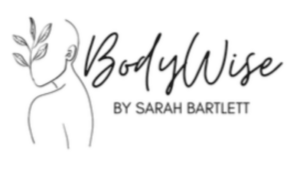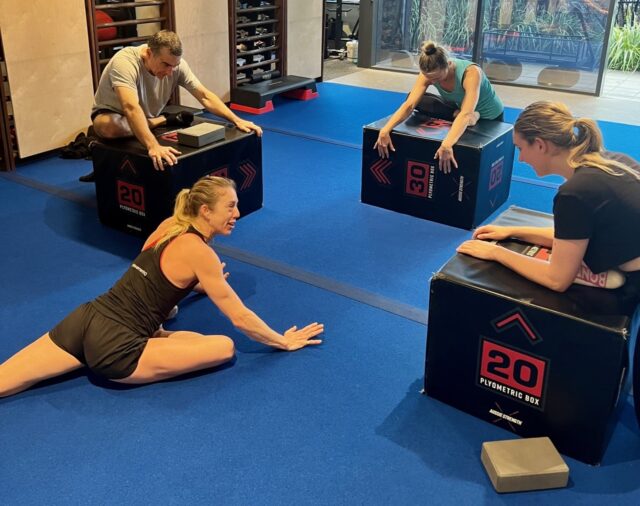5 tips to building a peak physique
By Sarah Bartlett, MHQ and Bodywise Body Composition Coach
Some of the most common questions I get asked in regards to nutrition are often around supplementation, ie “Should I be taking a protein supplement?” and nutrient timing “Is it better to have no carbs after 5pm?”.
For most people, I refer them to this concept, The Nutrition Pyramid.
This is a useful visual tool for understanding where to focus your attention with your nutrition strategy for building a peak physique, and equally as importantly, what not to get too caught up on!
You know the Pareto Principle: 80% of your results will come from 20% of your efforts.
In the 8-week Body Composition Program, this is the foundation of our strategy to build a peak physique.
So let’s learn to work smarter, not harder, and conserve more energy where we can.
1. Energy Balance is the Foundation
You need to eat enough food. Not too much, not too little, just the right amount.
Then you have to match your intake to your goal. In order to do this, you need to do a few calculations. What we need to work out is your Total Daily Energy Expenditure (TDEE), and you do this first by finding your Basal Metabolic Rate (BMR) and then multiplying that number by your Physical Activity Level (PAL).
If you don’t understand what these terms mean, join us for the next round of the Body Composition Program – we go over how to calculate this for each individual.
TDEE = BMR x PAL
I prefer the Katch-McKardle for calculating Basal Metabolic Rate (BMR) as it takes into consideration body composition, so we are calculating calories for the amount of lean body mass that an individual has, rather than their body weight and sex.
With your TDEE calculated, the next step is to work out if you need to be in a calorie deficit, surplus or at maintenance.
A deficit will elicit weight loss, a surplus will elicit weight gain, and a maintenance amount will keep your body weight stable.
What training you then throw into the mix, and your macro ratios, will influence what the weight lost/gained is (i.e. muscle, fat, water).
2. Macronutrients – you need ALL of them
You need all the macros. I am going to repeat that for those who didn’t want to read it: you need ALL the macros. Including carbohydrates. Especially carbohydrates!!
Animal protein too, as that is another category I see (specifically) young women restricting way too severely and their bodies are stressed because of it. Your reproductive system will thrive when you get this right. Hint: if your reproductive health is optimised your body is optimised!
Similarly, dehydration is a serious stressor on the body and it is estimated 80% of Australians are chronically dehydrated.
If your body aches, your skin is dry, your stool is hard/not coming daily and you feel generally tired, it is highly likely you are one of them.
3. Get your Micronutrients + Fibre
Micronutrients refer to the vitamins and minerals that our body uses in all our daily functions.
A deficiency of any particular nutrient in the long-term can have dire consequences on someone’s health, longevity and susceptibility to disease.
Likewise, fibre is vital for intestinal and bowel health and around 1 in 5 Australians have reported symptoms of Irritable Bowel Syndrome (IBS).
4. Meal Timing
Intermittent fasting, 5:2 diet, and other forms of time restricted eating are all tools that are utilised by coaches to control energy balance (the base of the pyramid).
These are not miraculous dieting strategies. There’s no magic to skipping breakfast, nor, on the counter, is it the most important meal of the day, as has so often been touted.
The truth of the matter is, it doesn’t matter so much when you eat as what and how much you eat for building a peak physique,.
If you prefer to skip breakfast and eat more calories later in the day (and your digestive system is OK with this) then go for it. Some people like to eat before they train, others prefer to train on an empty stomach – and for most people, the difference in results between eating before or after training is negligible, so long as energy balance is matched.
Don’t overcomplicate this – eat when you are hungry.
5. Supplements
And finally…supps. Where so many people want to spend all their time researching and throw all their money.
To be fair, many allied health professionals seem to want you to do this too, so I understand where the confusion may come from.
However, please understand that unless you have a nutrient deficiency as described above, if you ensure you eat plenty of vegetables and fruits, then you probably do not need a lot of supplementation.
Don’t get me wrong, supplements are incredibly useful in the right circumstances – but this requires bloodwork analyses and thorough consultation – we don’t just throw supplements at people and hope for good results. Except Magnesium…everyone gets magnesium.
The point here is simple, if you’ve been putting in effort and aren’t seeing the results you want, rather than rushing to the latest gimmick or hot supplement, take some time to pause and reflect and make sure you are addressing the issue correctly.
Start from the base of the pyramid and work up for building a peak physique.
Love your guts
🦁Coach Barty xx


Want to know more about the Bodywise and MHQ 8-week Body Composition Program starting 3 February?
CLICK HERE
